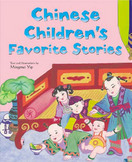

Your first violation will result in your post or comment being removed, with a warning. The book Tikki Tikki Tembo, by Arlene Mosel, is about one story in the Chinese culture that gives an explanation as to why they changed their perspective they had about giving long names to their first son. Tikki Tikki Tembo was named an American Library Association Notable Book and winner of the Boston Globe-Horn Book Award. Do not try to find a loophole around the rules - we will still ban you. 1968, Tikki Tikki Tembo, was originally presented as a classic retelling of a traditional Chinese Folktale, though it has later been suggested that the story probably originated from the Japanese folktale Jugemu. All rules are subject to moderator discretion. All rules subject to moderator discretion/3 strikes. If there is an appropriate tag for your post, you MUST use it. If you think that your bot may be legitimately useful, please contact us. so don't post it here unless it's specifically related to the Mandela effect.Īllow ANY BOT to post on our subreddit. This isn't a place to talk about religion, and it isn't a place to talk about politics. Ricky Tikki Tembo is a completely separate story from Tikki Tikki Tembo, the one you are recalling has quite a long name but the book you have is a newer version of the story that makes it easier for young children to read it. If your post isn't showing up - please don't submit 10 more copies! Message us first. One day when their mother wasn’t looking, they went up to the well to fly their kite however, just as their mum had said, Chang fell into the well. These belong in /r/MandelaJerk, or really wherever you want that isn't here. Tikki tikki tembo and his younger brother Chang sometimes disobey their mother and play by the well near the river. discuss two (ala 3) conflicts that rikki-tikki faces in story.

No fictional stories, satire, jokes, etc. Tikki Tikki Tembo by Arlene Mosel introduces readers to Tikki tikki tembo-no sa rembo-chari bari ruchi-pip peri pembo, the first and most honored son of his mother. Recent Presentations Content Topics Updated Contents Featured. Civil debate will always be allowed - but simply coming here to shut others ideas down will result in a ban. Read 1,069 reviews from the world’s largest community for readers. If you have a legitimate concern about a users mental health, contact the mods.Ĭome here to argue. This includes any accusations of being a "bot", "NPC", "insane", "crazy", etc. This subreddit is for CIVIL DISCUSSION of the Mandela effect. Posts must also include a body with specific details indicating why it relates to a known Mandela Effect or the Mandela Effect in general. Thoroughly sum up what your post is about in the title. No low effort posts, including vague titles. Instead, post a comment in the weekly DAE megathread, or depending on what you are asking consider checking out /r/TipOfMyTongue. If your question follows the lines of "does anyone else remember.", do NOT make a post.

These type of posts are best suited for /r/GlitchInTheMatrix. For example, we don't know what color your neighbors car is - so don't post about it here if it changes color. No personal changes or "DAE remember?" posts. The story of a young boy with a VERY long name who falls in a well, but is rescued, comes to life in this play, adapted from the book by Arlene Mosel.The script is 4 pages long and features 5 characters: narrator, Chang, Tikki Tikki Tembo, mother and old man.

Weston Woods Studios, a subsidiary of SCHOLASTIC Incġ online resource (1 audio file (21 min.)) : digital.The Mandela Effect is a group of people realizing they remember something differently than is generally known to be fact - the most famous example of this would be the Berenstain/Berenstein bears. 26 cm.)ġ online resource (1 audio file (9 min.)) : digital. Overdrive:b741600f-15a4-483d-a6b1-c5705acdc0c4Ģ sound discs (15 min.) : digital 4 3/4 in. If you havent already read Tikki Tikki Tembo, youve probably heard at least someone recite the deliriously long name of its protagonist: Tikki tikki tembo-no sa rembo-chari bari ruchi-pip peri pembo, by now a famous refrain in most nursery schools.


 0 kommentar(er)
0 kommentar(er)
